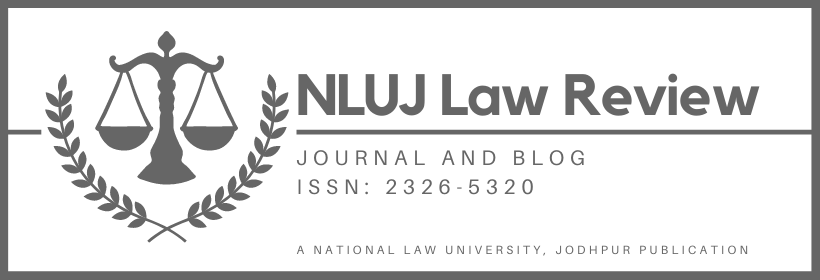The epoch of liberalization, privatization, and globalization made the Indian Government realize that the enduring statute of that time, i.e., the Monopolies and Restrictive Trade Practice Act, 1969, was inefficient for handling the competitive practices in the Indian economy. Therefore, the Indian Parliament enacted the Competition Act, 2002 (“the Act”). The preamble of the Act entrusts the Competition Commission of India (“CCI”) with the duty to sustain fair competition in Indian markets, to protect the interest of consumers, and to ensure freedom of trade. However, in the recent judgment ofSamir Aggarwal v. CCI, the findings of the National Company Law Appellate Tribunal (“NCLAT”) have not been sync with the aforesaid preamble.
In the brief digest of the dispute, Mr. Samir Agrawal (“Appellant”), being an Informant, asseverated against the anti-competitive practices carried out by Uber and Ola (“Respondents”), wherein the drivers and the cab aggregators functioned as a hub-and-spoke cartel. The drivers, being spokes, already knew the fare of the trip through the hub, i.e., Uber and Ola, thereby contravening the Act. However, the Respondents claimed that the Uber and Ola app works on an algorithm through which a person gets the cab, and the fares are decided pursuant to the trip. Hence, they claimed that it is an entirely computer-generated system. Further, it was contended that the drivers are not the employees but independent contractors, thus there was nothing akin to a typical hub-and-spoke arrangement.
The contention of the Appellant was considered non-maintainable by the Hon’ble NCLAT on the ground that the Appellant had no locus standi to provide information to CCI as an informant. None of his legal rights were affected either as a consumer or beneficiary of fair competition, which narrowed the garb of locus standi of the informant. This blog critically analyses the said pronouncement about redefining the locus standi under the Act and other paradoxes apropos to this.
Tracing up the contrarieties from the decision
i) A snag for CCI in delivering its statutory duties
In line with Section 18 and the preamble of the Act, the CCI has the duty to eliminate any anti-competitive practices such as dominance or cartels, ensure the freedom to trade in Indian markets and protect the interests of the customers. Pursuant to that, the CCI has the responsibility to maintain sturdy markets in India with healthy competition. However, the aforementioned decision of the NCLAT regarding the constriction of locus standi of the informant has severely affected the CCI’s powers in discharging their statutory duties.
The duties of the CCI are aimed towards the economy and markets as a whole and not towards any particular individuals, such as informants. Therefore, the judgments passed by CCI are in rem and not in personam. The CCI even settles the nature of the statutory mandate in certain pronouncements. In the matter of Hindustan Zinc Limited v. Western Coalfields Limited and Others, the CCI held that it has the power to begin the investigation on its own or based on information provided by the informant for discovering any anti-competitive activity in the market. It also stated that the powers and responsibilities of CCI are much broader.
Moreover, in the Matrix Info System case, the CCI has well observed that antecedents of the informant could never be considered as a ground to not take cognizance against any anti-competitive conduct of any institution or individual because the proceedings before the CCI are not in personam but in rem. The CCI has kindred observations in numerous orders as it believes that the substance of the information carries greater significance than the antecedents or filiation of the informant. Further, on the basis of such information, if CCI can prima facie discern the likeliness of existence of any non-compliance with the Act, then it can direct the Director General to investigate into the matter (Section 26). However, if such information prima facie doesn’t persuade the CCI about the probable presence of any violation of the Act, then the CCI can dismiss the complaint at the prima facie stage. However, putting such limitations on who could lodge information to the CCI, the NCLAT has empowered the giant players of the market to carry out anti-competitive practices, which critically influence the duties of CCI.
ii) An incongruous Interpretation
In various landmark pronouncements, the Supreme Court (“SC”) concluded that if the language of the Statute is unambiguous and plain, then every Court of law shall adjudge under the language of such Statute and no Court is empowered to hypothetically construct the interpretation of such Statute, even if such construction is more consistent from the active one. Moreover, in Deoki Nandan Case, the SC stated that “the Court could not go to any aid, correction or making up of the deficiency or omission in words used by the legislature. Courts shall decide based on what the law is and not what it should be.”
Section 19(1)(a) of the Act distinctly states that the CCI can inquire about any contraventions of the Act based on the information provided by any person. The term “any person” denotes the broad ambit of locus standi of the informant. Even in the case of Shri Surendra Prasad v. CCI and Ors., the Competition Appellate Tribunal [replaced with NCLAT through a government notification of 26th May 2017] settled that section 19(1)(a) of the Act did not furnish any limitation on the locus standi of the informant. Nonetheless, in the present matter, NCLAT had delivered the decision, settling the new locus standi of the informant, i.e., the informant should be the one who has suffered a transgression of their legal rights either as a consumer or as a recipient of the healthy competitive market. Thus, by constricting the ambit of locus standi, the NCLAT has tried to fill up the deficiency and decided what the law should be.
Moreover, such constructive interpretation of NCLAT has fatally affected the statutory duty of the CCI, embedded in the unambiguous, definite and plain language under the preamble and Section 18 of the Act. Therefore, the said decision of NCLAT encompasses disparity in the interpretation of the Act, and thus, it served as incongruous and illicit.
iii) The decision ultra vires the powers of NCLAT
Moreover, in the judgments of SEL Manufacturing and Embassy Property, the Courts concluded that any authority, which is the creation of any statute or derives its power from any statute, cannot proceed beyond the scope of such statute. The NCLAT, which is an authority deriving its power through Section 53B of the Act to adjudge the matters concerning with infractions of the Competition Act, 2002, had pronounced the aforementioned decision by redefining the constrictive locus standi of the informant, which is inconsistent with Section 19(1)(a) of the Act. It also causes a grave impact on the statutory mandates of CCI, pursuant to the Act. Hence, the NCLAT has travelled beyond the scope of the Act, through which it derives its power to adjudge, rendering its acts ultra vires.
Concluding remarks
It is affirmed that the primary mandate of the CCI is to eliminate the anti-competitive practices and to promote fair trade and competition in the market. Analysing the perspective of other nations in depleting anti-competitive acts, it is espied that the UK and European Union roll out the red carpet for the whistle-blowers or informants to inform the authority about any suspected infringements of the competition laws. However, in this dispute, the NCLAT has waned in effectuating the aims and objectives of the Competition Act, 2002, which consequently leads to the miscarriage of justice.
The adverse effect of constricting the locus standi of an informant is limited not only to the CCI but also to the stakeholders who maintain vigorous and healthy competitive markets. Whenever any information is brought before the CCI, it is not deemed as a “complaint.” Hence, any person can bring credible information to the CCI by filing it, much as a person who reports the first information of crime to the police, and the police investigates the same.
Moreover, in this case, the NCLAT has drawn an inconsistent interpretation of Section 19(1)(a) of the Act. Further, the NCLAT has travelled beyond the scope of the Act by hampering the statutory conduct of CCI and the locus standi of informant, enclosed in the Act, and therefore, it is ultra-vires of its powers. Thus, such imprecise decisions must be brought under the intense scrutiny of the Hon’ble Supreme Court by the Appellant, through filing an appeal under Section 53T of the Act.
This article has been authored by Jaskaran Singh Saluja and Himanshi Patwa, students at Institute of Law, Nirma University, Ahmedabad.



